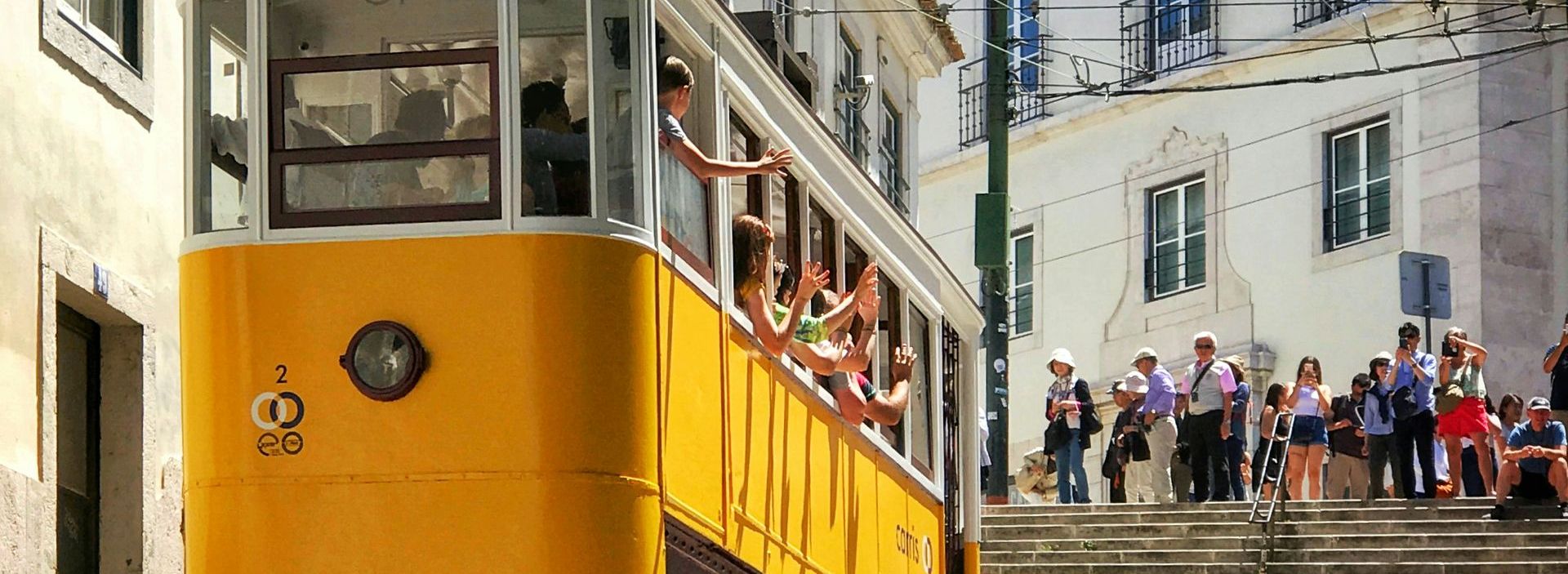Comprehensive Guide to the New Regulations for Alojamento Local in Portugal
Understanding the Latest Alojamento Local Regulations in Portugal: Key Changes, Implications, and Expert Tips for Compliance

Table of Contents
1. Introduction
2. Overview of Alojamento Local
3. Recent Changes in Alojamento Local Regulations
• 3.1. Decentralization of Regulatory Powers
• 3.2. Revocation of Previous Restrictions
• 3.3. Enhanced Role of Municipalities
4. Key Amendments in the New Legislation
• 4.1. Licensing Procedures
• 4.2. Condominium Rights and Limitations
• 4.3. Taxation and Financial Implications
• 4.4. Safety and Hygiene Standards
5. Impact on Property Owners
• 5.1. Compliance Requirements
• 5.2. Financial Considerations
• 5.3. Operational Adjustments
6. Implications for Guests
• 6.1. Quality Assurance
• 6.2. Pricing and Availability
• 6.3. Booking Procedures
7. Navigating the New Regulatory Landscape
• 7.1. Steps for Existing Operators
• 7.2. Guidance for New Entrants
• 7.3. Resources and Support
8. Frequently Asked Questions (FAQs)
• 8.1. What are the main changes in the new Alojamento Local regulations?
• 8.2. How do these changes affect existing licenses?
• 8.3. What are the new responsibilities of municipalities?
• 8.4. How do the new regulations impact condominium rights?
• 8.5. Are there changes in taxation for Alojamento Local operators?
• 8.6. What safety and hygiene standards are now required?
9. Conclusion
1. Introduction
In recent years, Portugal’s Alojamento Local (local accommodation) sector has experienced significant growth, contributing to the country’s tourism boom. To ensure sustainable development and address emerging challenges, the Portuguese government has introduced new regulations aimed at refining the operational framework of Alojamento Local establishments. This guide provides a detailed overview of these changes, their implications, and practical advice for property owners and guests.
2. Overview of Alojamento Local
Alojamento Local refers to short-term rental accommodations offered to tourists, encompassing a variety of property types such as apartments, houses, and guest rooms. This sector has become a vital component of Portugal’s tourism industry, offering travelers authentic experiences and property owners lucrative income opportunities.
3. Recent Changes in Alojamento Local Regulations
3.1. Decentralization of Regulatory Powers
The new legislation grants municipalities greater authority to regulate Alojamento Local operations within their jurisdictions. This shift aims to tailor regulations to local needs, addressing specific community concerns and promoting balanced tourism development.
3.2. Revocation of Previous Restrictions
Several restrictive measures imposed by earlier legislation have been revoked. Notably, the suspension of new Alojamento Local licenses in certain areas has been lifted, allowing for renewed growth and investment opportunities in the sector.
3.3. Enhanced Role of Municipalities
Municipalities now possess the power to establish their own regulations concerning Alojamento Local, including setting limits on the number of licenses issued and defining specific operational standards. This empowerment enables local governments to manage tourism’s impact more effectively.
4. Key Amendments in the New Legislation
4.1. Licensing Procedures
The process for obtaining an Alojamento Local license has been streamlined, with clearer guidelines and reduced bureaucratic hurdles. However, compliance with local municipal regulations is now a critical component of the licensing process.
4.2. Condominium Rights and Limitations
Condominium associations retain the right to oppose Alojamento Local operations within their buildings. However, the new regulations require that such opposition be substantiated by evidence of disturbances or negative impacts on residents, ensuring a fair balance between property owners and residents.
4.3. Taxation and Financial Implications
The legislation introduces adjustments to the taxation framework for Alojamento Local operators. These changes aim to ensure fair tax contributions while supporting the sector’s sustainability. Property owners are advised to consult with tax professionals to understand their obligations under the new laws.
4.4. Safety and Hygiene Standards
Enhanced safety and hygiene standards have been mandated to protect guests and maintain Portugal’s reputation as a safe tourist destination. Compliance with these standards is mandatory, and non-adherence may result in penalties or license revocation.
5. Impact on Property Owners
5.1. Compliance Requirements
Property owners must familiarize themselves with both national and municipal regulations to ensure full compliance. This includes adhering to licensing procedures, safety standards, and any local ordinances specific to their property’s location.
5.2. Financial Considerations
The revised taxation policies may affect the profitability of Alojamento Local operations. Owners should assess the financial implications of these changes and consider consulting financial advisors to optimize their business strategies.
5.3. Operational Adjustments
To align with the new regulations, property owners may need to implement operational changes, such as upgrading safety equipment, enhancing hygiene protocols, or modifying booking procedures to meet compliance standards.
6. Implications for Guests
6.1. Quality Assurance
Guests can expect improved quality and safety standards across Alojamento Local accommodations, resulting from stricter regulatory oversight and compliance requirements.
6.2. Pricing and Availability
The regulatory changes may influence pricing structures and the availability of Alojamento Local properties. Guests are encouraged to book accommodations in advance and be aware of potential price adjustments.
6.3. Booking Procedures
Enhanced transparency in booking procedures is anticipated, with clearer information regarding property compliance and standards, providing guests with greater confidence in their accommodation choices.
7. Navigating the New Regulatory Landscape
7.1. Steps for Existing Operators
• Review Compliance: Assess current operations against the new regulations and identify areas requiring adjustment.
• Update Licenses: Ensure all licenses are up-to-date and reflect any changes mandated by local authorities.
• Implement Standards: Upgrade safety and hygiene measures to meet the enhanced requirements.
7.2. Guidance for New Entrants
• Research Regulations: Understand both national and municipal requirements before entering the market.
• Seek Professional Advice: Consult legal and financial experts to navigate the licensing and taxation processes effectively.
• Engage with Communities: Build positive relationships with local communities to foster support and address any concerns.
7.3. Resources and Support
• Government Portals: Utilize official websites for the latest information on regulations and compliance guidelines.
• Professional Associations: Join industry associations for support, networking, and advocacy.
• Legal Counsel: Engage legal professionals specializing in real estate and tourism

7.3. Resources and Support (Continued)
• Legal Counsel: Engage legal professionals specializing in real estate and tourism laws for tailored advice on compliance with the new regulations.
• Local Authorities: Contact your municipality’s tourism or licensing office to clarify specific local rules and procedures.
• Online Forums and Communities: Join online groups and forums where Alojamento Local operators share experiences and strategies for navigating the new rules.
8.1. What are the main changes in the new Alojamento Local regulations?
The new regulations emphasize decentralized control, granting municipalities more power to regulate Alojamento Local operations. Key changes include updated licensing processes, enhanced safety and hygiene requirements, and clearer rules regarding condominium rights.
8.2. How do these changes affect existing licenses?
Existing licenses remain valid but must comply with any new local regulations imposed by municipalities. Property owners should review their licenses and address any new requirements to avoid penalties.
8.3. What are the new responsibilities of municipalities?
Municipalities can now set local limits on Alojamento Local licenses, define operational guidelines, and establish specific zones where short-term rentals are encouraged or restricted. Their goal is to manage the balance between tourism and community well-being.
8.4. How do the new regulations impact condominium rights?
Condominiums have the right to oppose Alojamento Local operations within their buildings if justified by valid concerns such as disturbances or safety issues. However, objections must be documented and cannot be based solely on preference.
8.5. Are there changes in taxation for Alojamento Local operators?
Yes, the taxation framework has been adjusted to ensure fair contributions from Alojamento Local operators. This may include revised tax rates or reporting obligations. Consult a tax advisor to understand your specific responsibilities under the new laws.
9. Conclusion
The new regulations for Alojamento Local in Portugal aim to balance the needs of property owners, guests, and local communities. By decentralizing control and empowering municipalities, the government seeks to create a sustainable and fair environment for the sector’s growth. Whether you are an existing operator or considering entering the market, staying informed and compliant with these rules is essential for success.
To navigate these changes effectively, leverage the available resources, consult with professionals, and maintain open communication with local authorities. For guests, these regulations promise improved quality, safety, and transparency, ensuring a memorable stay in Portugal’s iconic destinations.













